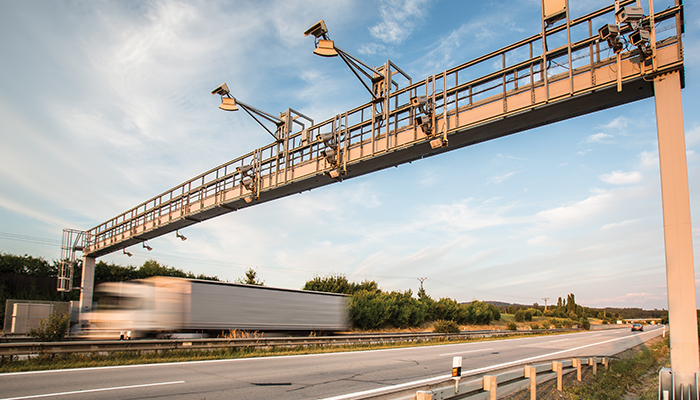Talks of infrastructure reform as a potentially unifying issue have been making news since Donald Trump was elected president back in November 2016.
Twenty-six months later, “President Trump, House Speaker Nancy Pelosi, Senate Majority Leader Mitch McConnell, and committee leaders of both parties say infrastructure reform might be one of the major pieces of legislation possible before 2020,” writes NEFI Vice President & Director of Government Affairs Jim Collura (see “New Congress Eyes Infrastructure, Climate & Taxes,” page 7). Yet, as of press time, the legislative process remains locked in a virtual standstill as the government has been shut down for more than 25 days, the longest shutdown in U.S. history.
As federal lawmakers drag their feet and repeatedly play to stalemate, some state leaders have taken matters into their own hands. For example, Rhode Island Governor Gina Raimondo, a Democrat who won re-election this past November, created the RhodeWorks program during her first term to accelerate investment in her state’s infrastructure projects. It’s the “how,” though — as in how does RhodeWorks raise money for these projects — that has set off alarms throughout the trucking industry, with the siren being heard loud and clear even among smaller fleet managers like local heating oil and propane delivery businesses.
Gantries Go Up
The Rhode Island Department of Transportation has received federal approval to construct 12 of 13 proposed trucks-only tolling gantries along major routes. Two have already been completed and in operation since June 11, 2018. The next 10 were approved December 20.
The two already operational truck tolls are located on Interstate 95 in Hopkinton and Exeter, both of which border Connecticut. The cost for a truck to pass through in Hopkinton is $3.25, and $3.50 in Exeter. A single truck can be charged once per toll each day in each direction. The next 10 tolls will go up over Interstates 95, 195, and 295, U.S. Route 6 and State Route 146.
On July 10, the American Trucking Associations (ATA), along with motor carriers Cumberland Farms Inc., M&M Transport Services Inc. and New England Motor Freight, sued the state of Rhode Island on the grounds that the truck toll program is unconstitutional.
“This toll regime was designed to, and does in fact, impose discriminatory and disproportionate burdens on out-of-state operators and on truckers who are operating in interstate commerce,” the plaintiffs said. “By design, the tolls fall exclusively on the types of trucks that are most likely to be engaged in the interstate transport of cargo, while exempting automobiles and the smaller vehicles that are relatively more likely to be engaged in intrastate travel.”
Oil Heat Institute of Rhode Island Executive Director Roberta Fagan sees other possible causes for concern. “Businesses that normally would have tractor-trailers traveling through RI may divert routes to avoid the tolls,” she told Oil & Energy during an interview last summer.
“Another point: approximately 40% of the fuel imported to RI fuel terminals is then trucked/transported to CT and MA,” Fagan added. “Truck tolling could severely impact the sale of petroleum products at RI fuel terminals. RI’s economy is fragile as is; truck tolling could have far reaching economic ripples that are hard to predict.”
As of January 14, 2019, the average weekly price for heating oil in Rhode Island was $2.84/gallon, according to the Rhode Island Office of Energy Resources. Diesel was $2.83/gallon, and propane was $3.16/gallon.
CT Could Be Next
Connecticut Governor Ned Lamont, a Democrat who succeeded in his second gubernatorial election bid this past November, has also set his sights on trucks-only tolling as a means of paying for infrastructure projects.
“Well my position on electronic tolling is very clear,” he told WSHU public radio in November. “We are going to focus just on those big tractor-trailer trucks. And that will raise us $250 million. It’s something I think I can get through this legislature on short order.”
If that happens, the ATA is likely to fight back once again, and they won’t be alone. Joe Sculley, president of the Motor Transportation Association of Connecticut, says the proposed trucks-only tolls “could double our tax burden overnight if it raises the money [Lamont]’s talking about.” Sculley says he agrees with the ATA legal claim that specifically targeting interstate carriers represents “a clear violation of the Constitution’s commerce clause.”
Fleet Frogger
Electronic tolling advocates often point to New York City’s bridges and tunnels as proof that new systems can be easily installed and quickly generate income, However, what these pundits fail to acknowledge is that traffic over the Williamsburg Bridge, one of few toll-less entries into Manhattan, has seemed to grow continuously over the past few years.
This could be due in part to the fact that many drivers will elect to take a longer route if it saves them money on tolls. Furthermore, finding a way around tolls is now easier than ever with consumer apps like Waze that provide drivers the option to do exactly that. One side effect of this particular app’s popularity is that some typically quiet residential areas have found themselves turned into busy throughways for GPS-enabled commuters seeking shortcuts.
If Fagan’s concern that interstate carriers might avoid passing through Rhode Island plays out as predicted, it is not difficult to imagine a scenario where more and more truckers seek out routes that allow their passage but are farther off the beaten path. This would have the unintended effect of relocating traffic congestion, thereby creating problems not just for Lamont’s “big tractor-trailer trucks” but also small fleets, local businesses and everyday commuters.
Nevertheless, everyone agrees road improvements need to be paid for somehow. As Congress debates infrastructure funding (among everything else) and states seek alternate solutions, Oil & Energy will continue to follow this still-developing story in the months ahead.


